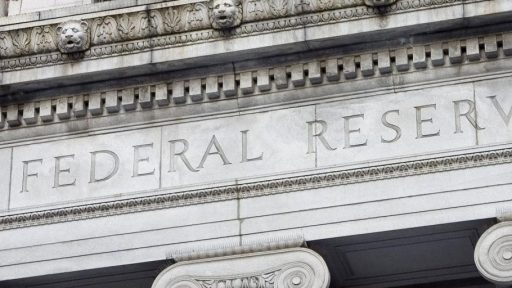- Home
- >
- Daily Accents
- >
- Federal Reserve against Markets. Who is wrong?

Federal Reserve against Markets. Who is wrong?

At a time of turbulent financial markets, investors received a clear message: global economic expansion is threatened. But the Fed remains optimistic, publishes strong forecasts for the US economy and plans for further interest rates.
Then is there a reason for investors to worry? The October IMF forecast for global economic growth indicates a healthy 3.7% growth. But, according to Maurice Obstfeld, chief economist at the IMF, slight cracks appear in the optimistic picture.
Five of the developed economies - Japan, Germany, Italy, Sweden and Switzerland - experienced signs of economic contraction in the third quarter of this year.
The introduction of more stringent standards for the emissions of harmful gases in cars in Europe and other single factors are the causes of this economic slowdown. Together, these economies account for 15% of global gross domestic product, according to Oxford Economics.
Many economists expect stronger growth in the fourth quarter of the year, but the worries that exist are enough for Mario Draghi to talk again about the emergence of risks to the Eurozone.
The leading economic indicators are downwards, with the OECD (Organization for Economic Cooperation and Development) reporting a slowdown in economic momentum for Europe, Canada and now and the United States.
Growth could slow in sync for the US, China, Europe and Japan next year. In the US, where the economy is about to mark an economic expansion of 3% in 2018, surveys between managers and corporate leaders indicate that they are concerned about economic performance.
According to a survey by Duke University, 48.6% of the financial directors surveyed think that a US recession will occur at the end of 2019, and 82% think recession will end by the end of 2020.
Erik Nielsen, chief economist at UniCredit, says he sees signs of nervousness across Europe, with commercial war damage deterring many companies from investing. According to UniCredit data, world trade has slowed down considerably. The growth forecast is only 2.25%, with the previous long-term forecast for global trade to grow to 4.5% on average.
Nielsen is particularly worried about the Chinese economy, where retail sales have shrunk to its lowest level in 15 years in November, and manufacturing power has fallen to its lowest level in three years.
Regardless of whether the deterioration of the market sentiment will increase and bring the corresponding economic consequences, it will all depend on how the central banks will react around the world.
The Fed has raised interest rates nine times in three years and is about to shrink its billions of dollars in the next year. This will come in combination with a reduction in fiscal stimulus in the second half of next year. Moody's analysts expect incentives for corporate tax cuts in the US and rising consumer spending to lose their full effect in 2020.
But US inflation has fallen into lethargy despite the fact that unemployment has been approaching its lowest levels since two centuries, which means the Fed can afford to be patient. And this will be the message the Fed will invest in investors in the coming weeks.
The Federals could delay or pause their current monetary policy next year. Economists share the view that this cycle has actually come to an end. If the Fed changed its mood to dovish, dark clouds over the markets would quickly dissipate.
Source: The Financial Times
 Trader Martin Nikolov
Trader Martin Nikolov Read more:
If you think, we can improve that section,
please comment. Your oppinion is imortant for us.











